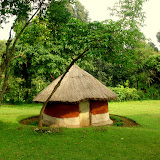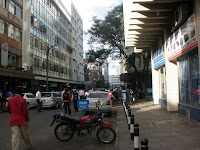Hello again people,
It’s not common that we upload two articles in a day, but after seeing the photos of Kampala and Entebbe I felt inspired. I want to tell you a little about Kampala.
So the idea is that they transform these bikes, usually of a Chinese brand, to fit two or three people. They add a sit to the small bike so the passenger can go behind the driver.
So when you want to go somewhere within the city you go to talk with the bodaboda-boys, as the locals call them, and tell him where you want to go. Before he takes you anywhere he will say how much he wants to charge you, this price can be discussed. After the price is established, he takes you to your destination and after you arrive you pay to him and he goes to another bodabora station.
Everyone tells you that riding a bodaboda is one of the experiences that Kampala has to offer to the tourists,
so we decided to try it out.
so we decided to try it out.
The first time we travel in a bodaboda was in the night. We were in one of the most crowded places of the city, it was kind of a street with an open market in it with hundreds of people walking, hundreds of cars in a traffic jam, some matatus making their way and hundreds of bodabodas just going everywhere, even in the sidewalk. Being in an African capital at the night is kind of scary but if you take care, don’t attract to much attention and don’t do anything stupid you are OK.
After walking a little we decided to take a bodaboda because we were far from Lucy’s house. We approach to one bodaboda station, we said our destination to one of the guys there and he said the price, which of course we bargain. Remember if you are a white guy and a tourist in Africa, ALWAYS bargain at least 50% of anything people wants to charge you. I will not lie, using bodabodas is dangerous. You know taxis are always in a hurry, well bodabodas are like taxis but in a bike and going in a hurry in a bike means going between cars, in the side walk or even the wrong way! Yes going in a bodaboda is dangerous, but as almost any dangerous thing, it is really fun! For people that take them for the first time at least. They are also really fast compared with going by car because they skip all the traffic jams, again, they broke quite a few transit rules, but if you want to get somewhere fast they are really useful.
OK guys, I just wanted to share with you this quick article about Kampala.
See you around guys








 probably bigger than any of the national parks back where you are from and I can assure you it has nothing in common with the ones you are used to.
probably bigger than any of the national parks back where you are from and I can assure you it has nothing in common with the ones you are used to.













